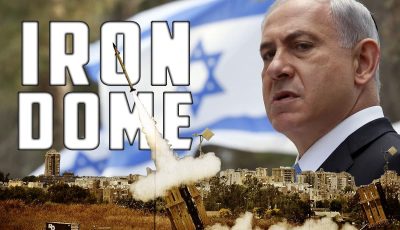It’s About Time the ICC Initiates Probe into Israeli War Crimes

It is about time for the International Criminal Court (ICC) to initiate and actually conduct a probe into war crimes perpetrated by Israel against the Palestinian people. ICC Prosecutor Fatou Bensouda announced recently that she would launch a full investigation into crimes committed by Israel as soon as the court’s jurisdiction has been established. She said a preliminary investigation initiated in 2015 had provided sufficient material to meet criteria for proceeding with a full probe that could lead to prosecutions.
Bensouda said she has filed a request with judges for an “expeditious” ruling on jurisdiction due to the contested legal status of the Palestinian territories conquered by Israel in 1967.
While Israel is not a signatory of the ICC’s Statute, Palestine applied in 2009 and gained membership in 2012 after its UN membership was upgraded by the UN General Assembly to “non-member observer state”. Palestine has joined other UN and international organisations and signed key treaties since then, strengthening its case with respect to the ICC.
Palestine signed the ICC statute on January 2, 2015. When its membership entered into force on April 1, 2015. The ICC held a ceremony welcoming Palestine as the 123rd state party to the Rome Statute, which was signed in July 1996 and entered into force on July 1, 2002. The European Union welcomed Palestine’s accession.
The Statute designates four international crimes: Genocide, crimes against humanity, war crimes and the crime of aggression. The ICC has jurisdiction if any of these crimes are committed on the territory of a member state. This is certainly true where the territory of Palestine is concerned.
On January 16, 2015, before Palestine’s membership had entered into force, the ICC prosecutor opened a preliminary examination into the situation in Palestine to determine whether to carry out the full probe. It is on the basis of this investigation that Bensouda intends to proceed. In the view of Bensouda, this confers on Palestine and the Palestinian Authority the right to pursue cases against Israel.
Two previous Palestinian complaints have been problematic. The first was an investigation into Israel’s 2010 attack on Turkish ferryboat, Mavi Marmara, which killed 10 peace activists taking part in a flotilla bound for Gaza. This complaint was dropped early last month.
The second was mounted in August 2014 into Israel’s illegal colonisation of Palestinian territory and onslaught on Gaza that killed 2,100-2,300 Palestinians, 67 Israeli soldiers, five Israeli civilians and one Thai worker. These cases were included in the preliminary probe.
Bensouda decided to take the plunge in 2014 during Israel’s disproportionate assault on Gaza. At that time, she intended her investigation to be entirely independent and focused on crimes defined by the Rome Statute. Unlike other figures critical of Israel actions, she does not regard “Israeli exceptionalism”, or impunity, as a reason for failing to tackle its bad behaviour.
The current focus is on Israeli West Bank settlement activities regarded as illegal under the Fourth Geneva Convention which prohibits colonisation of land conquered in war, Israeli violations in Gaza, abuses by Palestinian Authority security personnel, and Authority pensions for families of Palestinians who have mounted attacks on Israelis.
The Palestinian Authority welcomed Bensouda’s decision to proceed with a full investigation and demanded that proceedings go forward without further delays. “After nearly five years of preliminary examination, the Palestinian people who seek redress in this court expect actions congruent with the urgency and gravity of the situation in Palestine and they rightly demand that these steps are taken without delay.”
Both Israeli Prime Minister Binyamin Netanyahu and US Secretary of state Mike Pompeo have said the ICC has no jurisdiction because Palestine is not a “so sovereign state”. Neither Israel nor the US have joined the ICC so they have little direct purchase to exert pressure on the court. Israeli and US opposition to Bensouda’s probe was always expected. While Israel is a constant abuser of Palestinians, the US does its utmost to block efforts to curb Israel or punish it for its illegal actions. Israel and the US are certain to lobby ICC members to oppose and scupper the court’s probe with the aim of defending Israel from the “embarrassment” of having its citizens tried and, finally, found guilty of the “war crimes they have been committing for decades”.
However, the Trump administration, has transformed the US into a rogue state on the international scene. European governments are, in particular, fed up with his withdrawal of the US from well-established global treaties and agreements, including the Paris climate change accord and the six-nation deal to dismantle 90 per cent of Iran’s nuclear programme in exchange for sanctions relief.
On the Palestine-Israel front, Trump has put the nails in the coffin of the long moribund Palestinian-Israeli peace process. Instead of adopting an even-handed approach to negotiations between Palestine and Israel, Trump has done everything in his power to please and court Israel.
He has renounced 70 years of agreed international policy by recognising Jerusalem as Israel’s capital and shifting the US embassy to the Holy City. Trump has ended all US funding to the UN agency looking after Palestinian refugees and Pompeo has argued that Israeli settlements are not “illegal”.
Trump has recognised Israel’s unilateral annexation of the Syrian Golan Heights, occupied by Israel in 1967, and is expected to do the same once Netanyahu annexes Israeli West Bank colonies and the Jordan Valley. By taking these steps Trump has, essentially, preempted Palestinian-Israeli negotiations by deciding the fate of Jerusalem, refugees and Israeli settlements, key issues dividing the parties, as well as the Golan.
*
Note to readers: please click the share buttons above or below. Forward this article to your email lists. Crosspost on your blog site, internet forums. etc.

